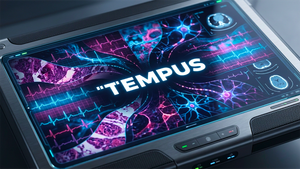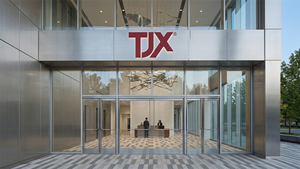Results support continued development in MDD with concomitant EDS; Phase 3 trial planned in 2025
Approximately 50 percent of MDD patients experience EDS1, highlighting high unmet need
NEW YORK, April 01, 2025 (GLOBE NEWSWIRE) -- Axsome Therapeutics, Inc. (NASDAQ: AXSM), a biopharmaceutical company leading a new era in the treatment of central nervous system (CNS) disorders, today announced results of the PARADIGM Phase 3 proof-of-concept trial of solriamfetol in major depressive disorder (MDD) with and without severe excessive daytime sleepiness (EDS). In the overall patient population, the study did not demonstrate a statistically significant change on the Montgomery-Åsberg Depression Rating Scale (MADRS) total score compared to placebo, the study’s primary endpoint. In the prespecified subgroup of patients with severe EDS, treatment with solriamfetol resulted in greater improvements in depressive symptoms compared to placebo. The study was not powered to demonstrate statistical significance in the prespecified subgroups. Based on the results in the EDS subgroup, Axsome plans to initiate a Phase 3 trial in MDD patients with EDS in 2025.
The PARADIGM study was a 6-week, randomized, double-blind, placebo-controlled, multicenter, U.S. trial, in which MDD patients with severe EDS (n=51) and without severe EDS (n=295) were randomized to treatment with solriamfetol 300 mg or placebo. EDS was assessed using the Epworth Sleepiness Scale (ESS). In MDD patients with severe EDS (ESS score ≥16), solriamfetol treatment resulted in clinically meaningful and numerically greater improvements compared to placebo on multiple efficacy measures including MADRS total score, MADRS anhedonia subscale, MADRS remission (total score ≤10), Clinical Global Impression of Severity (CGI-S), Clinical Global Impression of Improvement (CGI-I), and Patient Global Impression of Improvement (PGI-I), at Week 6. In patients without severe EDS, there was no meaningful difference as compared to placebo on the study endpoints.
EDS is a common symptom in patients with MDD and has a reported prevalence of approximately 50% in this patient population.1 With EDS, patients have difficulty maintaining wakefulness, and have an increased propensity to fall asleep throughout the day, even in inappropriate circumstances, resulting in impairment of activities of daily living and increased safety risks. Currently, no therapies are approved to treat MDD with EDS.
Herriot Tabuteau, MD, Chief Executive Officer of Axsome Therapeutics, said, “We are pleased to have completed the PARADIGM trial which provides data on the potential utility of solriamfetol in patients with MDD. The promising results with solriamfetol in MDD patients with severe EDS align with its known pharmacology and support its further evaluation in this potentially new indication. We plan to initiate a Phase 3 trial in MDD with EDS this year.”
Solriamfetol was safe and well tolerated in the trial, with a side effect profile that was consistent with the established safety profile of solriamfetol.
Full results will be presented at future scientific conferences.
About Major Depressive Disorder
Major Depressive Disorder (MDD) is a serious, common, biologically based disorder characterized by depressed mood and loss of interest or pleasure, as well as disturbed sleep or appetite, impaired cognitive function, feelings of guilt and worthlessness, and low energy, among other symptoms. MDD can result in severe functional impairments that interfere with all aspects of life, and in severe cases, can lead to suicide.2 According to the World Health Organization (WHO), depression is the leading cause of disability worldwide, and one of the leading contributors to the global burden of disease. Approximately 21 million adults in the U.S. are affected by MDD each year,3 and approximately two-thirds of patients experience inadequate response with first-line treatment.4
About Solriamfetol
Solriamfetol is a dopamine and norepinephrine reuptake inhibitor (DNRI), TAAR1 agonist, and 5-HT1A agonist being developed for the treatment of attention deficit hyperactivity disorder (ADHD), major depressive disorder (MDD), binge eating disorder (BED), and excessive sleepiness associated with shift work disorder (SWD).
About Axsome Therapeutics
Axsome Therapeutics is a biopharmaceutical company leading a new era in the treatment of central nervous system (CNS) conditions. We deliver scientific breakthroughs by identifying critical gaps in care and develop differentiated products with a focus on novel mechanisms of action that enable meaningful advancements in patient outcomes. Our industry-leading neuroscience portfolio includes FDA-approved treatments for major depressive disorder, excessive daytime sleepiness associated with narcolepsy and obstructive sleep apnea, and migraine, and multiple late-stage development programs addressing a broad range of serious neurological and psychiatric conditions that impact over 150 million people in the United States. Together, we are on a mission to solve some of the brain’s biggest problems so patients and their loved ones can flourish.
Forward Looking Statements
Certain matters discussed in this press release are “forward-looking statements”. The Company may, in some cases, use terms such as “predicts,” “believes,” “potential,” “continue,” “estimates,” “anticipates,” “expects,” “plans,” “intends,” “may,” “could,” “might,” “will,” “should” or other words that convey uncertainty of future events or outcomes to identify these forward-looking statements. In particular, the Company’s statements regarding trends and potential future results are examples of such forward-looking statements. The forward-looking statements include risks and uncertainties, including, but not limited to, the commercial success of the Company’s Sunosi®, Auvelity®, and Symbravo® products and the success of the Company’s efforts to obtain any additional indication(s) with respect to solriamfetol and/or AXS-05; the Company’s ability to maintain and expand payer coverage; the success, timing and cost of the Company’s ongoing clinical trials and anticipated clinical trials for the Company’s current product candidates, including statements regarding the timing of initiation, pace of enrollment and completion of the trials (including the Company’s ability to fully fund the Company’s disclosed clinical trials, which assumes no material changes to the Company’s currently projected revenues or expenses), futility analyses and receipt of interim results, which are not necessarily indicative of the final results of the Company’s ongoing clinical trials, and/or data readouts, and the number or type of studies or nature of results necessary to support the filing of a new drug application (“NDA”) for any of the Company’s current product candidates; the Company’s ability to fund additional clinical trials to continue the advancement of the Company’s product candidates; the timing of and the Company’s ability to obtain and maintain U.S. Food and Drug Administration (“FDA”) or other regulatory authority approval of, or other action with respect to, the Company’s product candidates, including statements regarding the timing of any NDA submission; the Company’s ability to successfully defend its intellectual property or obtain the necessary licenses at a cost acceptable to the Company, if at all; the successful implementation of the Company’s research and development programs and collaborations; the success of the Company’s license agreements; the acceptance by the market of the Company’s products and product candidates, if approved; the Company’s anticipated capital requirements, including the amount of capital required for the commercialization of Sunosi, Auvelity, and Symbravo and for the Company’s commercial launch of its other product candidates, if approved, and the potential impact on the Company’s anticipated cash runway; the Company’s ability to convert sales to recognized revenue and maintain a favorable gross to net sales; unforeseen circumstances or other disruptions to normal business operations arising from or related to domestic political climate, geo-political conflicts or a global pandemic and other factors, including general economic conditions and regulatory developments, not within the Company’s control. The factors discussed herein could cause actual results and developments to be materially different from those expressed in or implied by such statements. The forward-looking statements are made only as of the date of this press release and the Company undertakes no obligation to publicly update such forward-looking statements to reflect subsequent events or circumstance.
Investors:
Mark Jacobson
Chief Operating Officer
(212) 332-3243
mjacobson@axsome.com
Media:
Darren Opland
Director, Corporate Communications
(929) 837-1065
dopland@axsome.com
References
- Hein M, Lanquart JP, Loas G, Hubain P, Linkowski P. Prevalence and risk factors of excessive daytime sleepiness in major depression: A study with 703 individuals referred for polysomnography. J Affect Disord. 2019 Jan 15;243:23-32.
- World Health Organization. Depressive disorder (depression). Accessed March 2025.
- National Institute of Mental Health. Major Depression. Accessed March 2025.
- Rush AJ et al. Acute and longer-term outcomes in depressed outpatients requiring one or several treatment steps: a STAR*D report. Am J Psychiatry. 2006 Nov;163(11):1905-17.







